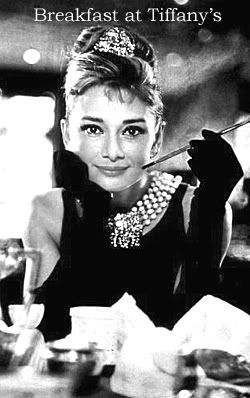La Democratie ParleThe French voters have spoken: Former Interior Minister Nicolas Sarkozy will be the country's "new generation" leader. On Sunday, in the biggest voter turnout in a quarter of a century, Sarkozy captured 53 percent of the presidential vote -- roughly the same percentage that Jacques Chirac received when he was
first elected in 1995.
(In comparison, the U.S. presidential candidate to win as much was the elder George Bush, who gained 53.4 percent almost 20 years ago in 1988. Bill Clinton received 43 and 49.2 percent in 1992 and '96 respectively, and George W. Bush tallied 47.9 and 50.7 percent in 2000 and '04. The last Democrat to win a percentage larger than Sarkozy was
Lyndon Johnson in 1964.)
What does this all mean?
Is France in the midst of its
Thatcher Moment?
"The French people have chosen to break with the ideas, the habits and the actions of the past," Sarkozy said in a victory speech following his emphatic triumph over Socialist Segolene Royal.
The former interior minister with a tough line on immigration campaigned on a pledge to change France to face the realities of the 21st century and get the country back to work -- a platform viewed with a mixture of anticipation and trepidation. French newspapers of the left and right agreed Monday that Sarkozy -- often attacked as a divisive figure -- had won a clear mandate for reform. "With the strong legitimacy his indisputable electoral performance gives him, the new president of the Republic can now begin his great transformation, but taking care, of course, to reconcile the French," wrote the right-wing Le Figaro. "Nicolas Sarkozy is a legitimate president, elected without rotten tricks or hesitation," wrote the left-wing Liberation. "Tough, but it's the people's will. Thatcher without the petticoats? Let us prepare ourselves ... "Sarkozy's programme includes the abolition of tax on overtime, big cuts in inheritance tax, a law guaranteeing minimum service in transport strikes, and rules to oblige the unemployed to take up offered work.The French people, it seems, are tired of gross domestic product (
GDP) rates running in the
middle of the EU pack and of unemployment rates near the bottom of its European counterparts and almost twice as much as those in the United States. Let's see if they have the fortitude to correct their overly managed economy and become more business-friendly, like say
an Ireland, which is now second only to the United States in GDP.
Sarkozy also holds promise as a closer ally of the United States -- although being French and all, we may never actually know it.
Prior to the election results being made public, Sen. Richard Lugar, an Indiana Republican, said a Sarkozy victory would be favorable to the United States."Clearly, his views are more in line with ours," Lugar told CNN's "Late Edition With Wolf Blitzer."Sen. Charles Schumer, a New York Democrat, concurred: "I do. I do," he told CNN. "I mean, it would be nice to have someone who is head of France who doesn't almost have a knee-jerk reaction against the United States."It should be noted that Sarkozy opposed the use of force in Iraq. But there is a difference between opposing a friend's actions and
actively undermining U.N. sanctions and resolutions. But the foreign policy activitities are of little consequence. Except for having veto power on the United Nations Security Council, French standing among the world's powers in minimal. (It's standing army is only the
20th largest in the world -- behind Brazil, Taiwan and Thailand -- and just more than half the size of the Iranian army. Its special forces remain superior, however, and it maintains its nuclear arsenal.)
And
this sidenote is interesting.
With today's election in France, the advanced industrialized democracies of the world (i.e., the G7) have all had a chance to weigh in since the 2003 invasion of Iraq. Who won those elections anyway, the anti-American hysteric, or the pro-American supporter of the war on terror? Here is the scorecard:Pro-American supporters of the war on terror:United States (George Bush, 2004)Great Britain (Tony Blair, 2005)Germany (Angela Merkel, 2005)Japan (Junichiro Koizumi, 2005)Canada (Stephen Harper, 2006)France (Nicolas Sarkozy, 2007)Anti-American opponents of the war on terror:Italy -- (Romano Brodi, 2006)6-to-1 pro-American (or, if you prefer, pro-Bush), with all polls taken since the invasion of Iraq. Germany and France, once the most vocal advocates of indefinitely propping up the genocidal dictator in Iraq, have now elected leaders who sound just like Bush.The above statement may give too much credit to "pro-Bush," as both Bush and Blair would have difficulties if they were to stand for re-election. In part, it's because of Iraq. In part, it's because people tire of seeing the same person in charge.
But is this a trend? Is the West moving rightward? The case is building.
